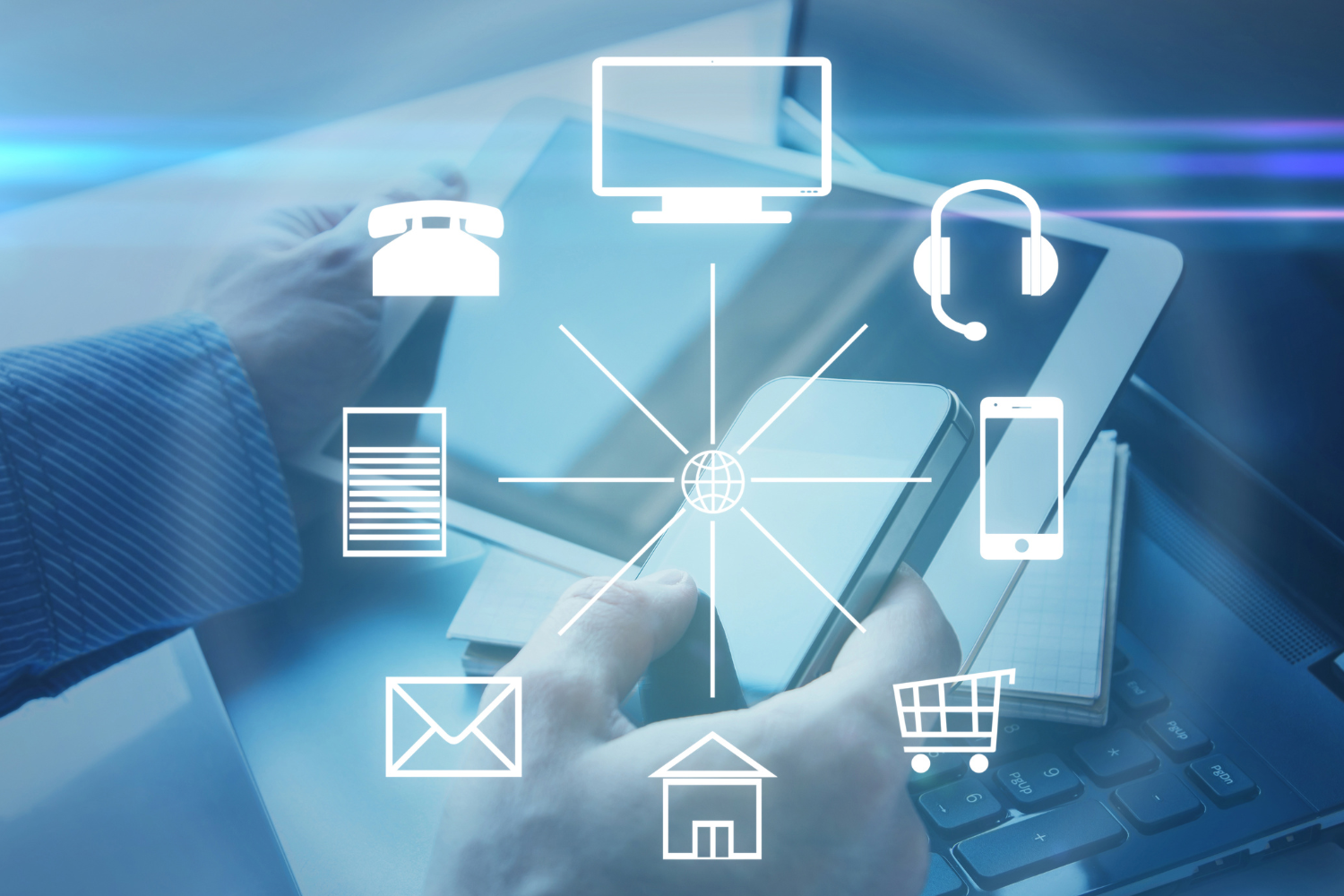Omnichannel Marketing In today’s digital era, businesses are constantly searching for innovative ways to connect with their customers. One such approach that has gained significant traction is omnichannel marketing. In this article, we will delve into the concept of omnichannel marketing, explore its key elements, discuss its benefits, and provide insights on how to implement a successful omnichannel marketing strategy.
1. Introduction to Omnichannel Marketing
In a world where customers interact with brands through various touchpoints, including websites, social media, physical stores, mobile apps, and more, it has become imperative for businesses to adopt a holistic approach to marketing. Omnichannel marketing focuses on creating a seamless and integrated customer experience across all these channels.
2. Understanding Omnichannel Marketing
Definition and Concept Omnichannel marketing can be defined as a strategy that aims to deliver a consistent brand message and customer experience across multiple channels. It goes beyond traditional multichannel marketing by integrating all channels and touchpoints into a cohesive and synchronized ecosystem.
Importance of Omnichannel Marketing The rise of digital technologies has transformed customer behavior and expectations. Customers now expect a consistent and personalized experience, regardless of the channel they choose to interact with. By adopting an omnichannel marketing approach, businesses can meet these expectations and create a competitive edge in the market.
3. Key Elements of Omnichannel Marketing

Integrated Customer Experience At the heart of omnichannel marketing lies the idea of providing customers with a seamless and unified experience. This requires businesses to break down silos and ensure that all channels are connected, enabling a smooth transition as customers move from one channel to another.
Seamless Communication Channels
Omnichannel marketing relies on effective communication between channels. Customers should be able to start an interaction on one channel and continue it seamlessly on another without any disruption. This requires a robust infrastructure that enables real-time data synchronization and channel integration.
Personalization and Targeting
To truly engage customers, businesses must tailor their marketing efforts based on individual preferences and behaviors. By leveraging data and analytics, businesses can create personalized experiences that resonate with customers and drive conversions.
Data Analytics and Insights
Data plays a crucial role in omnichannel marketing. By collecting and analyzing customer data from various touchpoints, businesses can gain valuable insights into customer behavior, preferences, and trends. These insights can then be used to optimize marketing strategies and improve overall performance.
4. Benefits of Omnichannel Marketing
Enhanced Customer Experience
Omnichannel marketing puts the customer at the center of the strategy. By providing a seamless and personalized experience, businesses can enhance customer satisfaction and build long-term relationships.
Increased Customer Loyalty and Retention
When customers receive consistent and personalized experiences across all channels, they are more likely to develop a sense of loyalty towards the brand. This leads to higher customer retention rates and increased customer lifetime value.
Improved Marketing ROI
By leveraging the power of omnichannel marketing, businesses can optimize their marketing efforts and improve return on investment (ROI). Through data-driven insights and targeted campaigns, businesses can allocate resources more efficiently and achieve better results.
5. Implementing an Omnichannel Marketing Strategy
To successfully implement an omnichannel marketing strategy, businesses need to consider the following:
Understanding Customer Journey
Mapping out the customer journey is essential for identifying key touchpoints and understanding customer behavior. This helps businesses tailor their marketing efforts and deliver relevant messages at each stage of the customer journey.
Consistent Branding Across Channels
Maintaining consistent branding across all channels is crucial for building brand recognition and trust. From visual elements to tone of voice, businesses should ensure a cohesive brand identity that resonates with customers.
Integration of Online and Offline Channels
Omnichannel marketing is not limited to digital channels. It encompasses both online and offline touchpoints. Businesses should strive to integrate their online and offline strategies to provide a seamless experience across all channels.
Leveraging Technology and Automation
Technology plays a vital role in enabling omnichannel marketing. Businesses should leverage customer relationship management (CRM) systems, marketing automation tools, and data analytics platforms to streamline processes, automate workflows, and gain actionable insights.
6. Case Studies: Successful Omnichannel Marketing Campaigns
To illustrate the effectiveness of omnichannel marketing, let’s explore a few case studies:
- Company XYZ: By implementing an omnichannel marketing strategy, Company XYZ saw a 30% increase in online sales and a 20% increase in customer retention rates. They achieved this by integrating their e-commerce website, mobile app, and physical stores, providing customers with a seamless shopping experience.
- Company ABC: Company ABC used personalized email marketing, social media advertising, and targeted mobile app notifications to engage their customers at different touchpoints. As a result, they experienced a 25% uplift in conversion rates and a significant boost in customer loyalty.
7. Challenges and Best Practices in Omnichannel Marketing
While omnichannel marketing offers numerous benefits, it also comes with its own set of challenges. Some key challenges include:
Data Integration and Management
Integrating and managing data from various sources can be complex. Businesses should invest in robust data management systems and ensure data accuracy, security, and compliance.
Organizational Alignment
Omnichannel marketing requires collaboration and alignment across departments, including marketing, sales, customer service, and IT. Organizations should break down silos and foster a culture of cross-functional collaboration.
Delivering a Seamless Experience
Ensuring a seamless experience across channels requires continuous monitoring and optimization. Businesses should regularly test and optimize their omnichannel strategies to identify and address any gaps or inconsistencies.
Continuous Optimization and Adaptation
Omnichannel marketing is an ongoing process. Businesses should continuously monitor customer feedback, track performance metrics, and adapt their strategies to meet evolving customer needs and market dynamics.
8. Conclusion
In conclusion, omnichannel marketing is a powerful strategy that enables businesses to deliver seamless customer experiences across multiple channels. By integrating customer touchpoints, leveraging personalization, and leveraging data insights, businesses can enhance customer satisfaction, build loyalty, and improve marketing ROI. However, successful implementation requires careful planning, organizational alignment, and continuous optimization.




























































